 0
0
Products Description

Nickel-based welding wire is a key welding material commonly used for welding oil well casing. In the petroleum industry, oil well casing is used to fix and protect the walls of oil wells and ensure the normal operation of oil wells. Due to the complexity of the oil well environment, casing may be affected by extreme conditions such as high temperature, high pressure, corrosion and tensile strength, so it needs to have excellent corrosion resistance and high temperature strength.
Nickel-based welding wire has excellent corrosion resistance and high-temperature strength, making it one of the preferred materials for welding oil well casing. By using nickel-based welding wire for welding, the high strength and corrosion resistance of the oil well casing weld can be ensured, and the stability and life of the oil well can be improved.
Nickel-based welding wire also has excellent thermal expansion properties and can maintain the stability and sealing of the weld at high temperatures. This is critical for oil well casing because temperature changes during well production cause the casing to expand and contract, and the weld must be able to withstand this stress and remain intact.
In addition, nickel-based welding wire also has good processability and is suitable for various welding methods, such as argon arc welding, resistance welding, etc. It can meet the complex shape and size requirements of oil well casing and ensure the quality and reliability of welded joints.
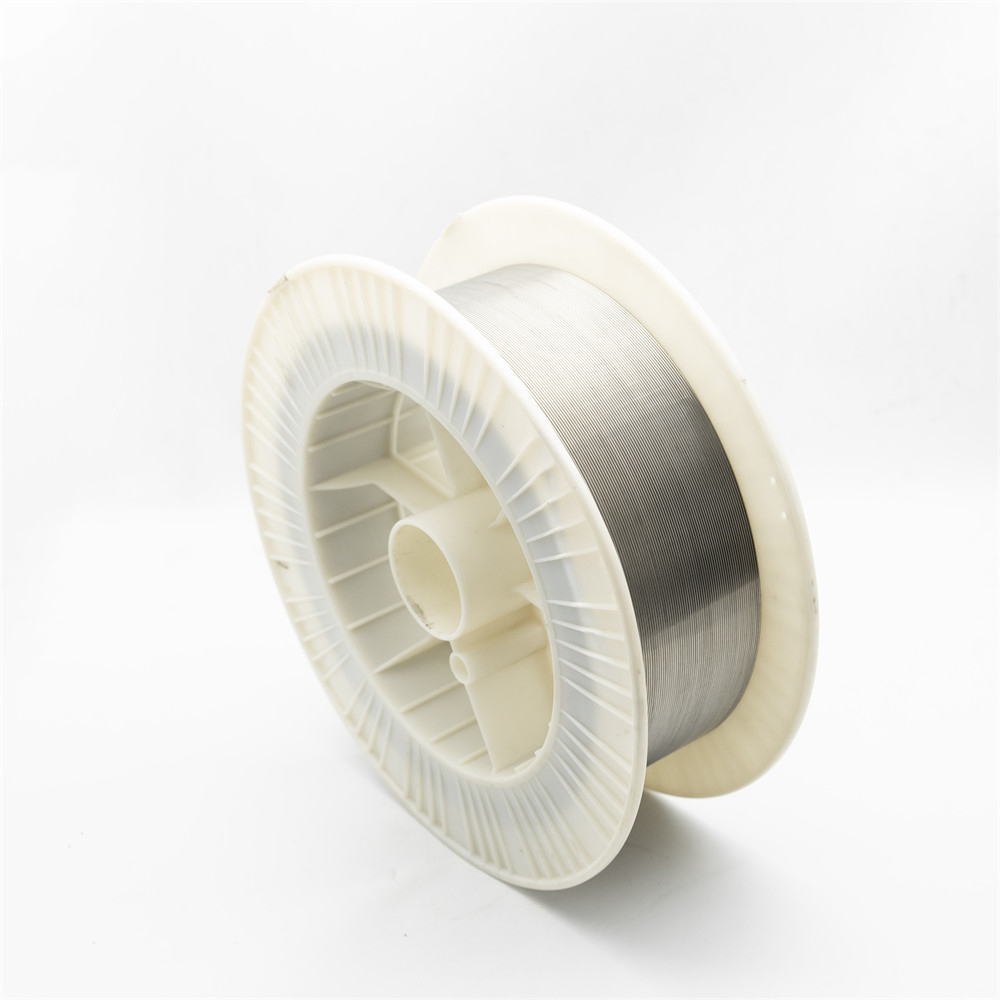
Welding series:
ERNiCrMo-3,ERNiCrMo-4,ERNiCrMo-13,ERNiCrFe-3,ERNiCrFe-7,ERNiCr-3,ERNiCr-7,ERNiCu-7,ERNi-1, ER70S-6.
Standard: Conforms to Certification AWS A5.14 ASME SFA A5.14
Size: 0.8MM / 1.0MM / 1.2MM / 1.6MM / 2.4MM / 3.2MM / 3.8MM / 4.0MM / 5.0MM
Form: MIG(15kgs/spool), TIG(5kgs/box),Strip
Product parameters:

Main component: nickel alloy (nickel is the main component, including other alloy elements)
Diameter range: usually between 0.8mm and 2.4mm
Strength: High strength and excellent mechanical properties
Corrosion Resistance: Resistant to corrosion and chemical attack in oil well environments
High temperature resistance: able to withstand stress and thermal cycles in high temperature environments
Item | ERNiCrMo-3 | ERNiCrMo-4 | ERNiCrMo-13 | ERNiCrFe-7 | ERNiCr-3 | ERNiCu-7 | ERCuNi | ERNi-1 |
C | 0.1 | 0.02 | 0.01 | 0.04 | 0.1 | 0.15 | 0.03 | 0.15 |
Mn | 0.05 | 1 | 0.5 | 1 | 2.5-3.5 | 4 | 0.5-1.0 | 1 |
Fe | 5 | 4-7 | 1.5 | 7-11 | 3 | 2.5 | 0.65 | 1 |
P | 0.02 | 0.04 | 0.015 | 0.02 | 0.03 | 0.02 | 0.01 | 0.03 |
S | 0.015 | 0.03 | 0.005 | 0.015 | 0.015 | 0.015 | 0.01 | 0.015 |
Si | 0.05 | 0.08 | 0.1 | 0.5 | 0.5 | 1.25 | 0.15 | 0.75 |
Cu | 0.5 | 0.5 | N/A | 0.3 | 0.5 | rest | rest | 0.25 |
Ni | ≥58 | rest | rest | rest | ≥67 | 62-69 | 30-32 | ≥93 |
Co | N/A | 2.5 | 0.3 | N/A | N/A | N/A | N/A | N/A |
Al | 0.4 | N/A | 0.1-0.4 | 1.1 | N/A | 1.25 | 0.15 | 1.5 |
Ti | 0.4 | N/A | N/A | 1 | 0.75 | 1.5-3 | 0.5 | 2-3.5 |
Cr | 20-23 | 14.5-16.5 | 22-24 | 28.5-31 | 18.0-22.0 | N/A | N/A | N/A |
Nb+Ta | 3.5-4.15 | N/A | 1.8-2.5 | 0.01 | 2.0-3.0 | N/A | N/A | N/A |
Mo | 8.0-10 | 15-17 | 15-16 | 0.5 | N/A | N/A | N/A | N/A |
V | N/A | 0.35 | N/A | N/A | N/A | N/A | N/A | N/A |
W | N/A | 3.0-4.5 | N/A | N/A | N/A | N/A | N/A | N/A |
Rest | ≤0.50 | ≤0.50 | ≤0.50 | ≤0.50 | ≤0.50 | ≤0.50 | ≤0.50 | ≤0.50 |
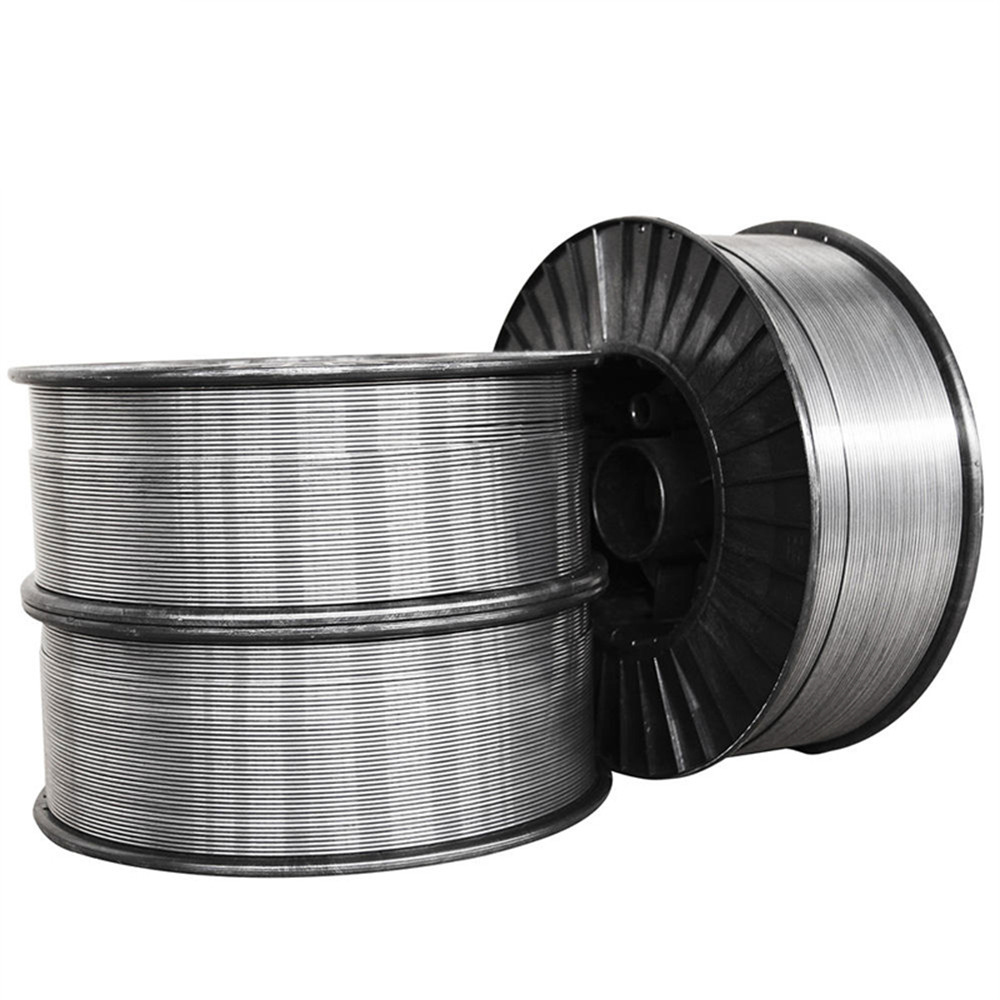
Nickel and Nickel Alloy Welding Wire | |
Product Model (AWS) | Application |
ERNiCr-3 | For welding 600, 601 and 800 alloys themselves, and welding dissimilar steels between stainless steel and carbon steel ERNiCrFe-7; For welding Inconel alloys within ASTM B163, 166, 167 and 168 |
ERNiCrFe-6 | For welding of steel and Inconel, welding of steel and stainless steel and nickel-based alloys |
ERNiCrCoMo-1 | Dissimilar welding for welding nickel-chromium-cobalt-molybdenum alloys and various superalloys |
ERNiCrMo-3 | It is used for welding of nickel alloy, carbon steel, stainless steel and low alloy steel, mainly used for welding of 625, 601, 802 alloy and welding of 9% nickel alloy |
ERNi-CI | Industrial pure nickel for welding malleable and grey cast iron |
ERCuNi | For welding of 70/30, 80/20, 90/10 copper-nickel alloys |
ERNiCu-7 | For welding nickel copper alloys B127, 163, 164 and 165 etc. |
ERNi-1 | For welding of pure nickel castings and forgings such as alloys within ASTM B160, 161, 162, 163 |
ERNiFeMn-CI | For welding of nodular cast iron, ductile iron, malleable cast iron and grey cast iron to itself or to stainless steel, carbon steel, low alloy steel and various nickel alloys |
ERNiCrMo-4 | For welding nickel-chromium-molybdenum alloy itself, or welding nickel-chromium-molybdenum alloy and steel and most other nickel-based alloys |
ERNiCrMo-11 | It is used for welding of nickel-chromium-molybdenum alloy itself, or welding of nickel-chromium-molybdenum alloy and steel and most other nickel-based alloys, and can also be used for surfacing welding of nickel-chromium-molybdenum alloy and steel welding seam |
ERNiCrMo-13 | For welding low carbon nickel chromium molybdenum alloys |
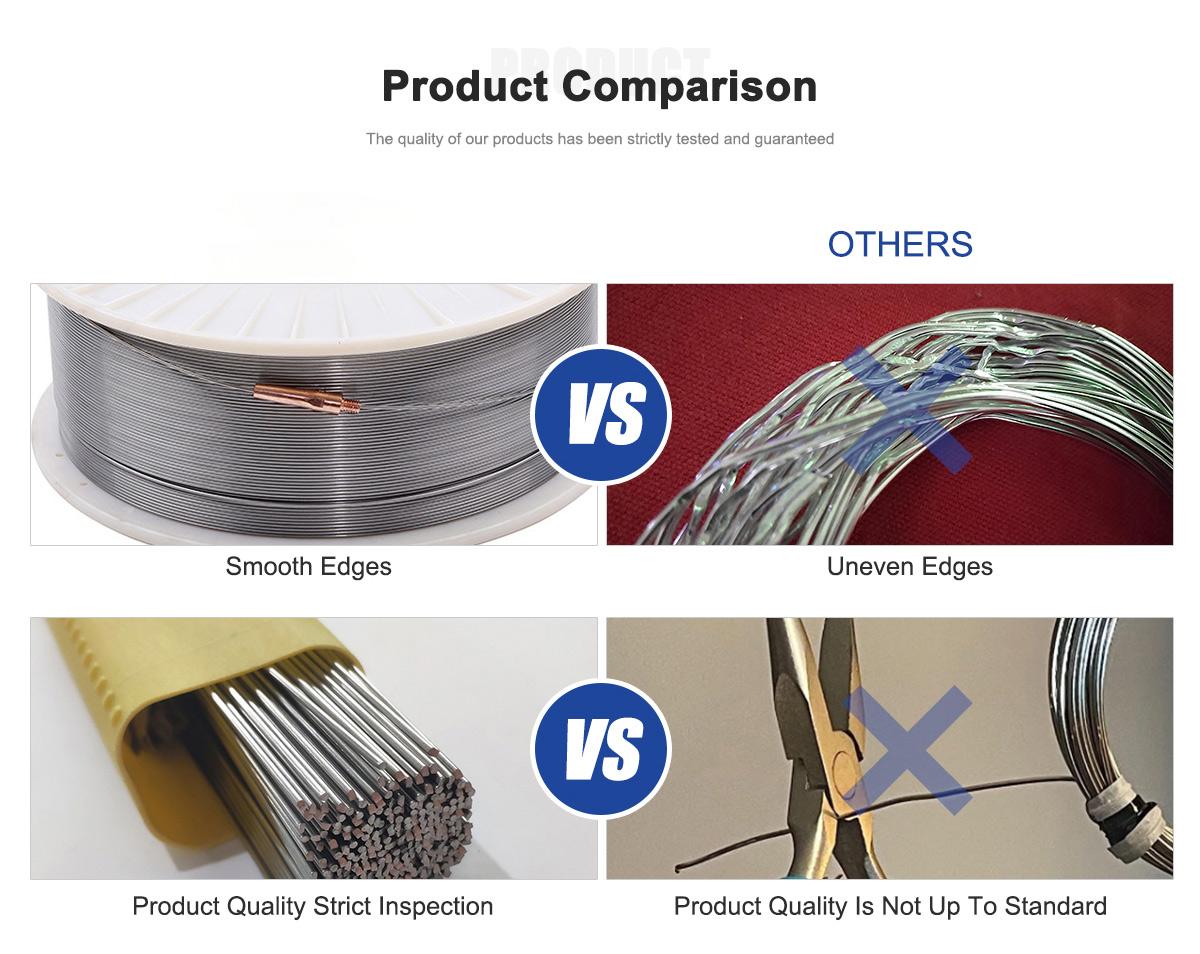
Product Features:

Corrosion resistance: Nickel-based welding wire has excellent corrosion resistance and can resist the erosion of welded joints by corrosive media and chemicals in the oil well environment, ensuring the integrity and reliability of the casing.
High temperature resistance: Nickel-based welding wire can maintain stability and strength in high-temperature environments and is not prone to deformation, melting or oxidation, ensuring the reliable use of casing in high-temperature oil well environments.
High strength: Nickel-based welding wire has high strength and excellent mechanical properties. The welded joint can withstand oil well pressure and mechanical load, ensuring the structural strength and integrity of the casing.
Good welding performance: Nickel-based welding wire has good welding performance and can perform good welding with oil well casing materials such as carbon steel and low alloy steel, ensuring the quality and reliability of the welded joints.
Specific applications:

Nickel-based welding wire is widely used in oil well casing welding, including but not limited to the following aspects:
Oil well casing connection and repair
Connection of oil well annulus and casing casing
Oil well casing repair and reinforcement
Other relevant knowledge points:

Nickel-based welding wire is usually welded using methods such as argon arc welding or arc welding.
During the oil well casing welding process, appropriate welding parameters and heat input need to be controlled to ensure welding quality and joint performance.
The quality and reliability of oil well casing welding are of great significance to the safety and production of oil wells.
All in all, nickel-based welding wire, as an important material for welding oil well casing, has excellent corrosion resistance, high temperature resistance and high strength properties. Its corrosion resistance, high temperature resistance, high strength and good welding properties make it an ideal choice for welding oil well casing. By using nickel-based welding wire, the integrity and reliability of oil well casing can be ensured, and the safety and production efficiency of oil wells can be improved.
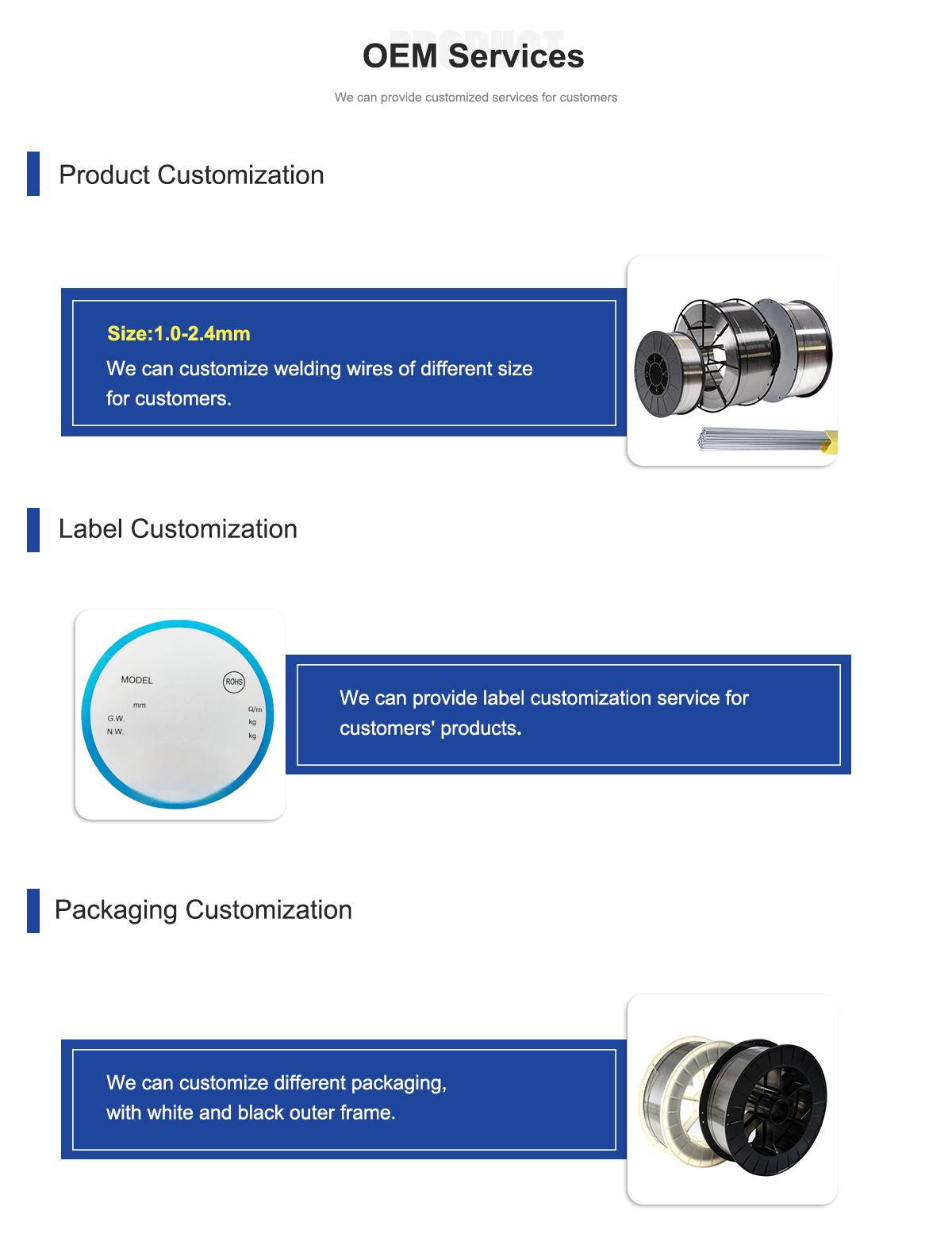
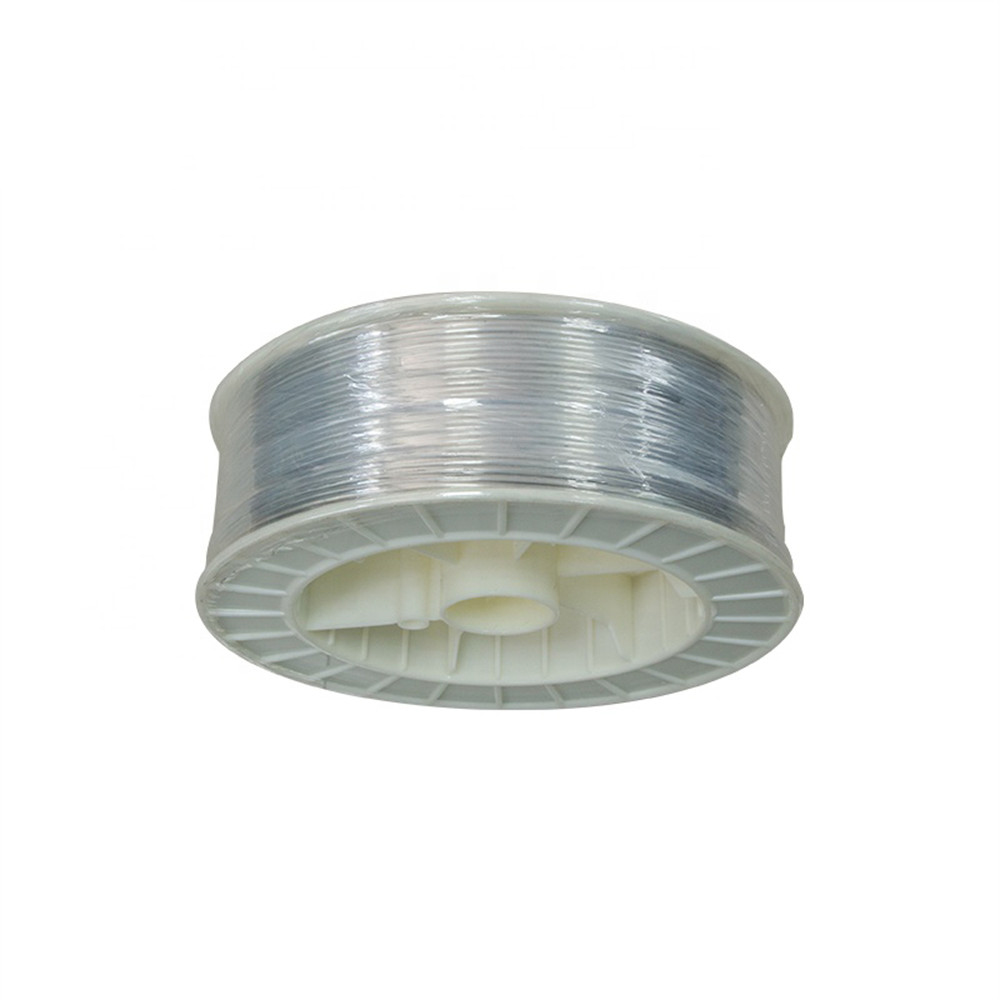
FAQ

What is the role of nickel-based welding wire in welding oil well casing?
Nickel-based welding wire plays a role in ensuring high strength and corrosion resistance of the weld in welding oil well casing.
What are the excellent properties of nickel-based welding wire?
Nickel-based welding wire has corrosion resistance, high temperature strength, thermal expansion properties and good processability.
What corrosive media can nickel-based welding wire resist?
Nickel-based welding wire can resist corrosive media such as acid and alkali solutions, salt solutions and organic solvents.
E-mail: Info@hulkalloy.com
Mobile: 0086 13852926463
Tel: 0086 13852926463
Whatapps: 0086 13852926463
Add: Renli Village, Fangxian Town, Danyang City, Jiangsu Province, China